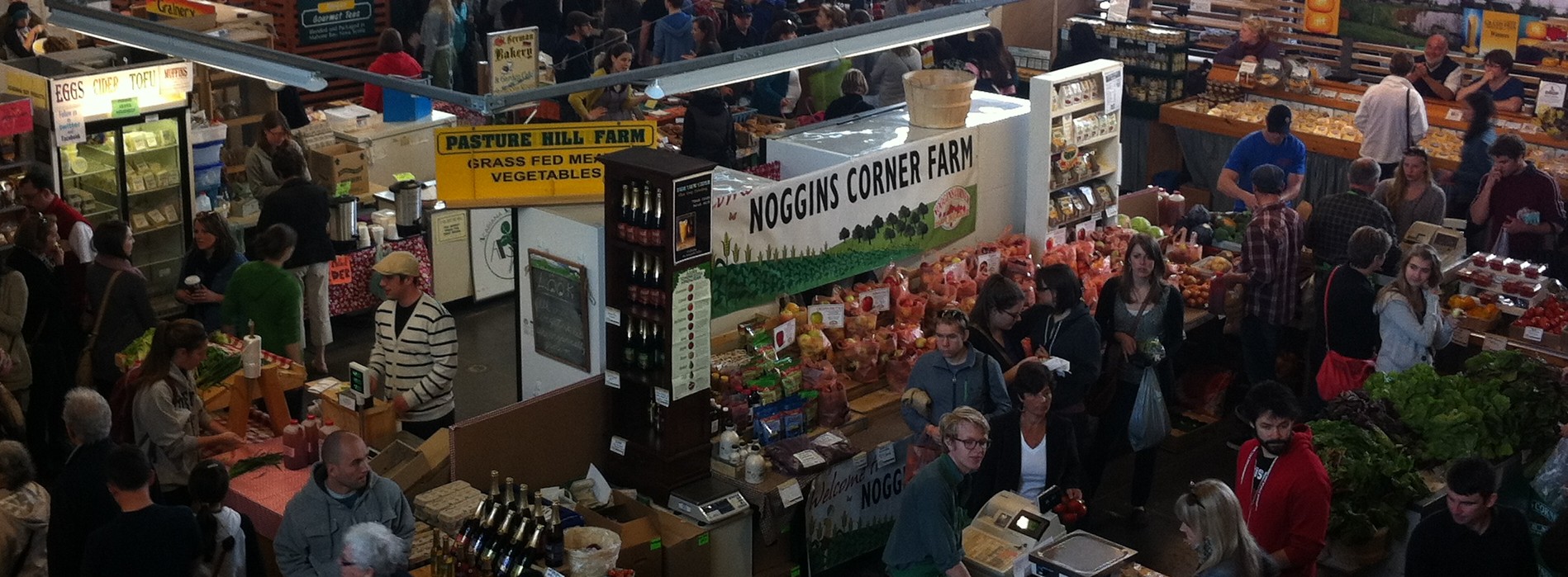Canada is a great place to backpack, but let’s face it… it’s not exactly cheap. Many backpackers who travel this northern country recount past trips to Thailand or Cambodia, where they could comfortably live off of $10 to $15 a day. While you’ll be hard pressed to come close to that type of budget while backpacking in Canada, there are a few programs out there that allow you to stretch your travels, while giving you a unique look into real life in Canada.
1. WWOOF Canada
 While the name might conjure up thoughts of dogs barking, I assure you that WWOOFing is much more approachable. World Wide Opportunities on Organic Farms is a global network that bring volunteers and farmers together in order to share and promote education, cultural exchange and a community where food, animals, and land are respected and protected. In short, WWOOF is an organic help exchange with farms in almost every province of Canada. You put in some volunteer hours (4-6 hours per day, 5-5.5 days per week) at a farm, and the WWOOF hosts offer food, accommodation and opportunities to learn about their unique eco-friendly lifestyle. WWOOFers are expected to help as much as possible and participate with whatever farm related chores that need doing. If you’re required to do any work with machinery check to make sure your annual travel insurance covers that. If you’re a Canadian backpacker traveling within Canada there’s no need to worry as you’re fully covered under Canada’s medicare system. Most farms will allow you to stay 1 week or longer; however some hosts require a minimum of 2 weeks. Work varies depending on the host, so be sure to ask lots of questions. [box type=”info” border=”full” icon=”none”]
While the name might conjure up thoughts of dogs barking, I assure you that WWOOFing is much more approachable. World Wide Opportunities on Organic Farms is a global network that bring volunteers and farmers together in order to share and promote education, cultural exchange and a community where food, animals, and land are respected and protected. In short, WWOOF is an organic help exchange with farms in almost every province of Canada. You put in some volunteer hours (4-6 hours per day, 5-5.5 days per week) at a farm, and the WWOOF hosts offer food, accommodation and opportunities to learn about their unique eco-friendly lifestyle. WWOOFers are expected to help as much as possible and participate with whatever farm related chores that need doing. If you’re required to do any work with machinery check to make sure your annual travel insurance covers that. If you’re a Canadian backpacker traveling within Canada there’s no need to worry as you’re fully covered under Canada’s medicare system. Most farms will allow you to stay 1 week or longer; however some hosts require a minimum of 2 weeks. Work varies depending on the host, so be sure to ask lots of questions. [box type=”info” border=”full” icon=”none”]
How to Start WWOOFing
Register to become a WWOOFer, $50.00 for a single membership, or $62.00 for a join two year membership. Details can be found at their registration page. Once you’re paid up they give you access to the full listings where you’re able to find out more information about the hosts, what type of farming they do, and what type of work you’ll be doing in exchange for a stay. You can preview the listings; however, note they’re limited until you sign up. [/box]
2. HelpX
 HelpX is almost identical to WWOOF, however they aren’t limited to organic farms. HelpX is an online listing of hosts that include everything from B&B’s, organic farms, non-organic farms, farmstays, ranches, lodges, backpackers hostels, and even sailing boats who invite volunteers to stay and work with them in exchange for food and accommodation. I personally find the HelpX website to be a lot easier to navigate and find information about Canadian hosts. There’s typically more images and more volunteer reviews of hosts which ensures your stay will be a safe one without any weird surprises. You can find out easily what type of category your host falls under, and where they’re located along with what type of work they need help with. Note: If you’re not from Canada and plan on doing any heavy duty work with farming equipment, be sure to shop around for a cheap travel insurance package that covers accidents. Accidents are rare, but they do happen and it can’t hurt to be covered.[box type=”info” border=”full” icon=”none”]
HelpX is almost identical to WWOOF, however they aren’t limited to organic farms. HelpX is an online listing of hosts that include everything from B&B’s, organic farms, non-organic farms, farmstays, ranches, lodges, backpackers hostels, and even sailing boats who invite volunteers to stay and work with them in exchange for food and accommodation. I personally find the HelpX website to be a lot easier to navigate and find information about Canadian hosts. There’s typically more images and more volunteer reviews of hosts which ensures your stay will be a safe one without any weird surprises. You can find out easily what type of category your host falls under, and where they’re located along with what type of work they need help with. Note: If you’re not from Canada and plan on doing any heavy duty work with farming equipment, be sure to shop around for a cheap travel insurance package that covers accidents. Accidents are rare, but they do happen and it can’t hurt to be covered.[box type=”info” border=”full” icon=”none”]
How to get started on HelpX
You can view a lot of the listings for free; however you’ll need to create an account. In order to get detailed listings though, you’ll need to register to their premier helper membership, which costs $29 dollars for 2 years. HelpX isn’t limited to Canada, you can find hosts in Australia, New Zealand, Europe, and USA as well. Their listings are neatly organized and are typically very detailed. HelpX also has a companions section where you can meet other volunteers to work with, as many of the hosts require more than one worker. [/box]
3. CouchSurfing
 If the thought of herding cattle and helping garden doesn’t entice you, there is of course Couch Surfing. Hosts from all over the world, including Canada, will happily let you crash on their couch for an allotted amount of time. The idea behind Couch Surfing is very much a “pay it forward” type of concept. Couch Surfers expect that travellers will eventually settle down, and once settled down can become hosts themselves; thereby expanding the network and allowing for a “give & take”. Obviously people don’t want you crashing on their couch for long, it’s good to ensure that both host and couch surfer are on the same page when they decide when and where they’ll meet up and how long the stay will be. It’s expected that when you’re couch surfing to keep your area tidy, help out around the house with chores, and while not “necessary”, it’s good manners to treat your host to a free meal, or at the very least buy them a beer. Be helpful, after all they’re giving you a place to stay for free! [box type=”info” border=”full” icon=”none”]
If the thought of herding cattle and helping garden doesn’t entice you, there is of course Couch Surfing. Hosts from all over the world, including Canada, will happily let you crash on their couch for an allotted amount of time. The idea behind Couch Surfing is very much a “pay it forward” type of concept. Couch Surfers expect that travellers will eventually settle down, and once settled down can become hosts themselves; thereby expanding the network and allowing for a “give & take”. Obviously people don’t want you crashing on their couch for long, it’s good to ensure that both host and couch surfer are on the same page when they decide when and where they’ll meet up and how long the stay will be. It’s expected that when you’re couch surfing to keep your area tidy, help out around the house with chores, and while not “necessary”, it’s good manners to treat your host to a free meal, or at the very least buy them a beer. Be helpful, after all they’re giving you a place to stay for free! [box type=”info” border=”full” icon=”none”]
How to get started Couch Surfing in Canada
First you’ll need to create a profile, upload some photos of you, and explain to the network who you are. Be yourself, explain your interests, passions, etc. Then you’ll want to ensure that you’ve got some favourable reviews and possibly confirm your identity with a credit card. Some hosts will only accept those who’ve been given the “thumbs up” by other couch surfers, however if you’re friendly just as many don’t require it. You can increase your references by participating in Couch Surfing in your local community before hand, or by being a host for a while. Best of all, it’s completely free! For more about Couchsurfing check out their Tips Page. [/box]
If you’re planning on doing any amount of long term travel in Canada, joining even one of these communities can save you weeks on accommodation costs ($35 x 14 days = $490, based on Busy Season Downtown Hostel Rates), leaving you with more cash to spend on tours, food, and good times! While all three of these programs are fairly different from one another, they have a lot of things in common. By participating in these communities each offers a great way to save money, a safe way to meet people from all over the world, and a unique way of learning about a completely different region of Canada you might not have been exposed to had you stayed on the “backpacker trail”.
